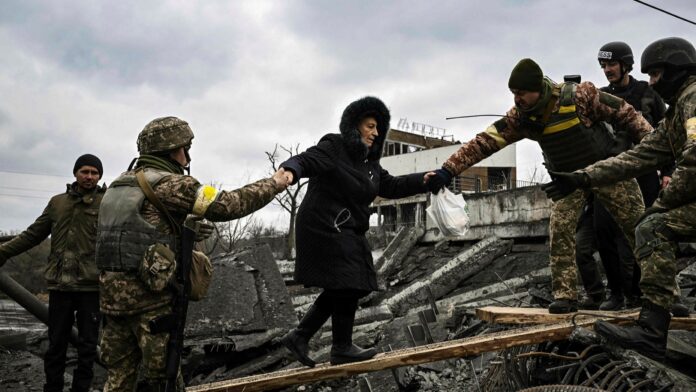The question of whether Ukraine should join NATO has become a pivotal issue in European security. President Joe Biden’s recent remarks, cautioning against Ukraine’s immediate entry into the alliance, highlight the complexities and risks associated with such a decision. As Ukraine faces an ongoing conflict with Russia and seeks to strengthen its ties with the West, the debate over NATO membership intensifies. Balancing security guarantees for Ukraine with the potential for escalating tensions and conflict with Russia requires careful consideration.
The Case for Ukraine in NATO
Proponents argue that Ukraine’s inclusion in NATO would provide ironclad security guarantees, dispelling its vulnerability to Russian aggression. A definitive promise of membership would deter further incursions and solidify Ukraine’s desire to align itself with democratic values and the West. Furthermore, Ukraine’s battle-hardened army would bolster NATO’s military capabilities, ensuring a stronger defense posture against common adversaries.
The Case Against Ukraine in NATO
Detractors warn that admitting Ukraine to NATO during an ongoing conflict could trigger a direct confrontation with Russia. Biden underscores the need to avoid escalating tensions and emphasizes the importance of a rational path towards membership that includes prerequisites such as democratization. Concerns persist that a set date for entry could prolong the conflict, granting Russia a pretext to continue its aggression. Moreover, granting Ukraine membership without resolving the conflict might reinforce Putin’s narrative that the West provoked the war to weaken Russia.

The Risks and Implications
A decision on Ukraine’s NATO membership carries significant risks and implications. Offering security guarantees without membership, similar to the arrangements with Israel and Taiwan, could provide Ukraine with the means to defend itself while avoiding a direct clash with Russia. Guaranteeing Ukraine’s security through NATO, however, heightens the risk of a potential war with nuclear-armed Russia, which would have catastrophic consequences. Analysts caution against assuming that American voters support a conflict with Moscow, highlighting the need for a comprehensive assessment of national interests.
The Importance of Political Will
Even if Biden were to change his stance on accelerating Ukraine’s NATO membership, the uncertainty surrounding future political leadership raises concerns. The possibility of a successor reneging on treaty obligations underscores the potential fragility of security guarantees. Failing to uphold such commitments could undermine NATO’s mutual defense ethos, erode the alliance’s integrity, and weaken trust among its members.
The question of Ukraine’s NATO membership is a complex and delicate issue. Balancing Ukraine’s security needs with the risk of exacerbating tensions with Russia requires careful deliberation and a rational approach. While Ukraine seeks the protection and stability that comes with NATO membership, the potential for escalation and the preservation of overall regional security must be taken into account. The decision ultimately lies at the intersection of national interests, the future of European security, and the moral imperative to protect democratic values. It is crucial that all stakeholders engage in thoughtful dialogue and pursue a path that ensures long-term stability and peace in the region.





